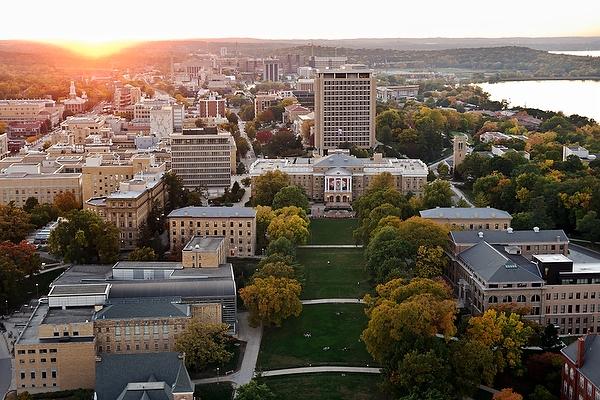User participation in University of Wisconsin’s online open enrollment courses spiked this year after continuous low engagement.
Massive Open Online Courses or MOOCs are virtual learning courses designed for learners all around the world to participate for no cost. At UW, the university works in partnership with the social entrepreneurship company Coursera to provide these free online courses, UW MOOCs and Educational Innovation spokesperson Lika Balenovich said.
MOOCS typically run for four weeks. All course topics include face-to-face events that happen around the state of Wisconsin, Balenovich said.
“MOOCs are complementary and supplementary to the university’s overall mission,” Balenovich said.
After launching in 2013, the first phase of UW MOOCs comprised of just four courses covering general concepts, Balenovich said. Now, in its second phase this year, the program features six specialized courses about environmental issues in the Midwest, she said.
In its first phase, MOOCS boasted more than 40,000 participants of those enrollees, but only 2 percent actively participated in the course. In its second phase, though the number of participants dropped to about 8,000, active participation jumped to 57 percent, according to a Wisconsin Public Radio report.
Balenovich said that while course enrollment has dropped, phase two users are more engaged and interacting at a deeper level with material videos and discussion boards.
While there has been some worry that MOOCs could pose a threat to higher education, Balenovich said MOOCs’ enrollee demographics tends to be older than college-age students, often people who already hold a bachelor’s or even graduate degrees.
Catherine Woodward, a faculty associate of the Nelson Institute for Environmental Studies and the Department of Botany, is set to lead this year’s second-to-last MOOC: “Forests and Humans: From the Midwest to Madagascar.”
Woodward said she looks forward to leading this fall’s MOOCs due to the high volume of participants.
“I’m pretty excited,” Woodward said. “Over 12,000 participants are enrolled from 159 different countries, way more than anticipated. I’ve gotten emails from everywhere from Canada to Nigeria asking about the course.”
Woodward said she believes her course exemplifies the Wisconsin Idea with its potential to make an impact beyond the campus and even the state.
The course will focus on forest ecology, exploring the valuable goods and services derived from our world’s forests and looking to find sustainable solutions for our environment, Woodward said. She hopes to bridge a connection between people from the Midwest with the forests in Madagascar.
“I want to show people how their consumption choices can have repercussions on the natural environment a world away,” Woodward said.
The course will run Sept. 30th through Oct. 28th. After that, the course will remain open through December 2015 to serve as an unmoderated but free educational resource.














